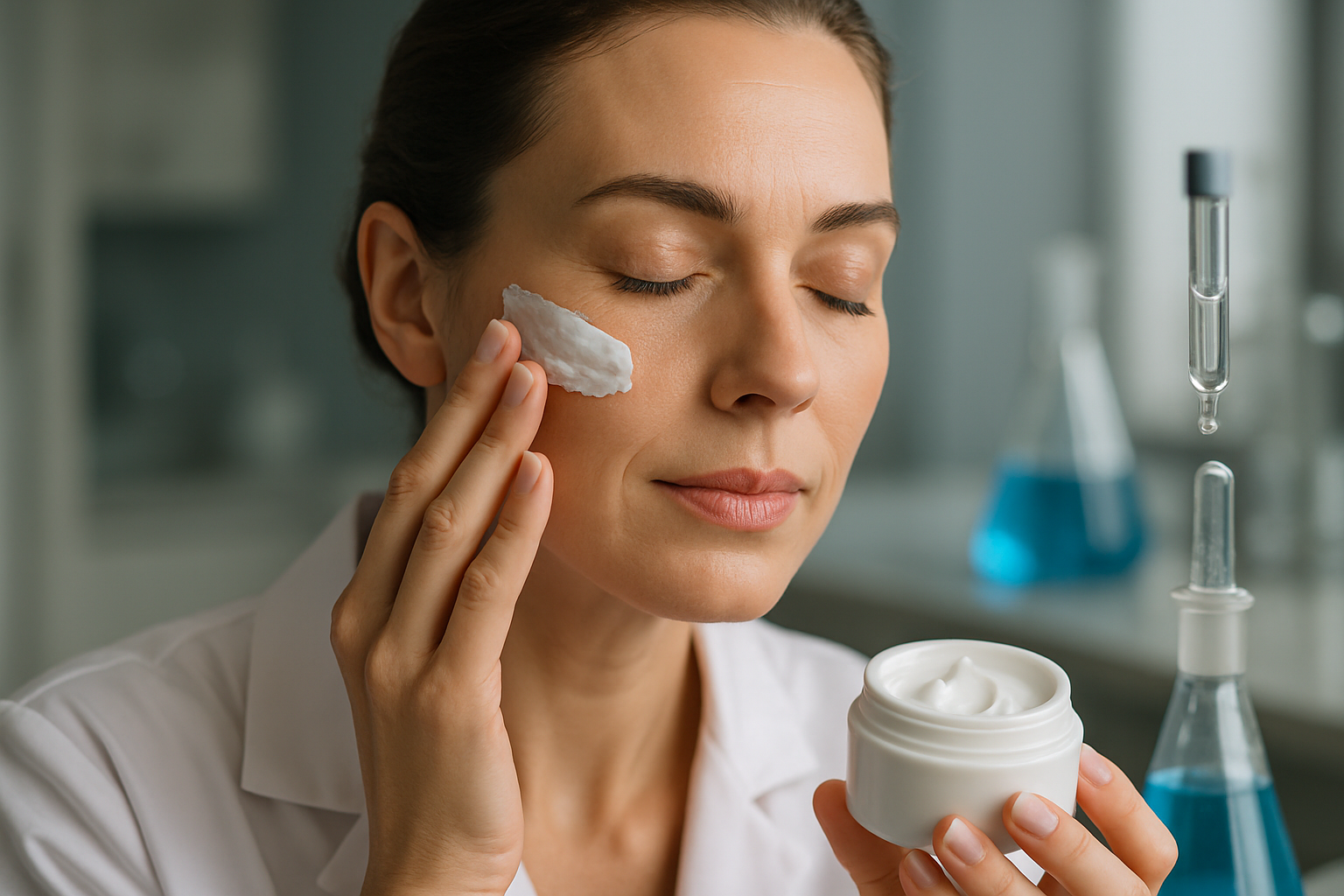Biocellulose: The Future of Skincare Innovation
In the ever-evolving world of beauty and skincare, a revolutionary ingredient is making waves and transforming the industry: biocellulose. This cutting-edge material, derived from natural sources, is quickly becoming the gold standard for advanced skincare applications. Biocellulose offers unparalleled benefits in terms of hydration, healing, and product delivery, making it a game-changer for both consumers and skincare professionals alike. As we delve into the fascinating world of biocellulose, we'll explore its origins, unique properties, and the myriad ways it's reshaping our approach to skin health and beauty.

The production process involves culturing the bacteria in a nutrient-rich medium, where they create a dense network of cellulose nanofibers. These fibers, measuring just 20-100 nanometers in diameter, form a three-dimensional structure that can hold up to 100 times its weight in water. This unique characteristic makes biocellulose an ideal material for skincare applications, as it can deliver and retain moisture effectively.
Moreover, the nanoscale structure of biocellulose allows for excellent adhesion to the skin’s surface, creating a “second skin” effect that promotes better absorption of active ingredients and provides a protective barrier against environmental stressors.
Historical Context and Development
The discovery of biocellulose dates back to 1886 when A.J. Brown first observed the formation of a “vinegar plant” during acetic acid fermentation. However, it wasn’t until the late 20th century that researchers began to explore its potential applications beyond food science.
In the 1980s, scientists in Brazil started investigating biocellulose as a potential wound dressing material due to its ability to maintain a moist environment and promote healing. This research laid the groundwork for its eventual adoption in the skincare industry.
The first commercial applications of biocellulose in beauty products emerged in the early 2000s, with sheet masks being one of the pioneering formats. Since then, the use of biocellulose has expanded to various skincare products, including serums, creams, and advanced delivery systems.
Biocellulose in Modern Skincare
Today, biocellulose has become a cornerstone of innovative skincare formulations. Its unique properties make it an excellent vehicle for delivering active ingredients deep into the skin, enhancing their efficacy and overall results.
One of the most popular applications of biocellulose is in the form of sheet masks. Unlike traditional cotton or paper masks, biocellulose masks conform perfectly to the contours of the face, creating an occlusive barrier that prevents evaporation and maximizes absorption of the treatment essence. This results in intense hydration and improved penetration of active ingredients.
Beyond masks, biocellulose is being incorporated into various skincare products as a delivery system for potent actives like vitamins, peptides, and antioxidants. The material’s ability to form a thin, invisible film on the skin’s surface helps to prolong the contact time of these ingredients, enhancing their efficacy.
Benefits and Applications
The advantages of biocellulose in skincare are numerous and multifaceted. Some of the key benefits include:
-
Superior hydration: Biocellulose can hold an impressive amount of water, providing intense and long-lasting hydration to the skin.
-
Enhanced ingredient delivery: The nanostructure of biocellulose allows for better penetration and absorption of active ingredients.
-
Soothing and cooling effect: When applied to the skin, biocellulose provides an immediate cooling sensation, making it ideal for calming irritated or inflamed skin.
-
Biodegradability: As a natural material, biocellulose is environmentally friendly and biodegradable, aligning with the growing demand for sustainable beauty products.
-
Versatility: Biocellulose can be used in various product formats, from sheet masks to serums and creams, making it adaptable to different skincare needs and preferences.
Market Impact and Industry Trends
The introduction of biocellulose has significantly impacted the skincare market, driving innovation and creating new product categories. According to market research, the global biocellulose market is expected to grow at a CAGR of over 15% between 2021 and 2026, with the cosmetics and personal care segment being a major contributor to this growth.
Several factors are driving this trend:
-
Increasing consumer demand for advanced, science-backed skincare solutions
-
Growing awareness of the importance of hydration in maintaining healthy skin
-
The rise of the “skinimalism” trend, which emphasizes efficacy and multifunctionality in skincare products
-
A shift towards sustainable and eco-friendly beauty options
As a result, many major skincare brands and emerging indie labels alike are incorporating biocellulose into their product lines, recognizing its potential to deliver superior results and meet consumer expectations.
Future Prospects and Innovations
The future of biocellulose in skincare looks promising, with ongoing research and development paving the way for even more innovative applications. Some emerging trends and potential future developments include:
-
Customized biocellulose formulations: Researchers are exploring ways to modify biocellulose at the molecular level to enhance its properties for specific skincare needs, such as oil control or anti-aging.
-
Biocellulose-based drug delivery systems: The material’s unique properties make it an excellent candidate for targeted delivery of topical medications, potentially revolutionizing the treatment of skin conditions.
-
Smart biocellulose products: Integration of biocellulose with smart technologies could lead to the development of responsive skincare products that adapt to individual skin needs in real-time.
-
Sustainable production methods: As demand grows, researchers are working on optimizing biocellulose production to make it more cost-effective and environmentally friendly.
-
Combination with other advanced materials: Biocellulose hybrids, combining the material with other innovative substances like graphene or nanoparticles, could unlock new possibilities in skincare performance.
In conclusion, biocellulose represents a significant leap forward in skincare technology, offering unparalleled benefits in terms of hydration, ingredient delivery, and overall skin health. As research continues and new applications emerge, this remarkable material is set to play an increasingly important role in shaping the future of beauty and skincare. With its unique properties and versatility, biocellulose is not just a trend but a fundamental shift in how we approach skin health and beauty, promising a new era of effective, sustainable, and innovative skincare solutions.






